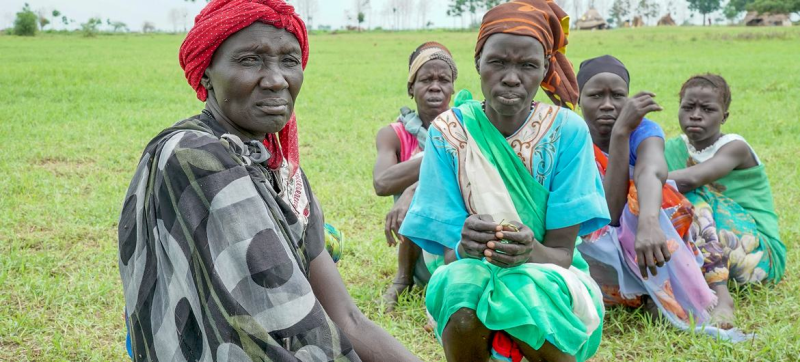- Chuadanga farmers thrive as cauliflower yields hit new high |
- Jamaat and allies set to begin seat-sharing discussions from Tuesday |
- ACC sues ex-minister Obaidul Quader, 13 more over illegal flat |
- Japan Issues Tsunami Alert After Strong 7.6 Quake |
- Bangladesh Plans Record Flag-Parachute Display on Victory Day |
UN Warns South Sudan Faces Renewed Conflict and Corruption

Over half the population of South Sudan are acutely food insecure.
The escalating political crisis in South Sudan is driving renewed armed violence and worsening the already dire humanitarian and human rights situation, UN investigators warned on Monday.
The Commission on Human Rights in South Sudan issued the warning at the conclusion of a mission to the African Union (AU) headquarters in Addis Ababa, Ethiopia.
South Sudan gained independence from Sudan in July 2011, but deadly fighting erupted in late 2013 between forces loyal to President Salva Kiir and those aligned with his rival, Riek Machar. Although a peace agreement eventually ended the war and a unity government was established, tensions flared again earlier this year following the arrest of Mr Machar, the First Vice President and main opposition leader.
The Commission said South Sudan’s political leaders have deliberately stalled progress towards peace, despite a decade of efforts by the AU and regional mediators.
Armed clashes are now occurring on a scale not seen since the cessation of hostilities in 2017, with civilians bearing the brunt of human rights violations and mass displacement.
Furthermore, the Commission warned that the “justice and accountability vacuum continues to fuel political intransigence, impunity, conflict and corruption.”
A recent report by the Commission highlighted how corruption and the diversion of public resources remain key drivers of conflict.
Barney Afako, who led the mission, said the ongoing political crisis, escalating fighting, and “unchecked, systemic corruption” reflected a profound failure of leadership.
“Unless there is immediate, sustained and coordinated political engagement by the region, South Sudan risks sliding back into full-scale conflict with unimaginable human rights consequences for its people and the wider region,” he said.
“South Sudanese are looking to the African Union and the region to rescue them from a preventable fate,” he added.
During talks with AU officials, the Commission emphasized the urgent need to establish the transitional justice mechanisms outlined in the peace agreement, particularly the Hybrid Court.
“More than ever, justice is essential for South Sudan,” said Yasmin Sooka, Chair of the Commission. “The promises made to victims years ago remain unmet.”
She said the Hybrid Court must ensure accountability for past crimes while strengthening national justice institutions.
The Commission noted that South Sudanese civilians are once again fleeing their homes due to renewed clashes. Around 300,000 people have fled the country this year alone, while neighbouring states now host more than 2.5 million South Sudanese refugees.
Inside the country, some two million people remain internally displaced, and South Sudan itself is hosting about 560,000 refugees who have fled the ongoing war in neighbouring Sudan.
“The mounting armed clashes, mass displacement and the fracturing of a peace agreement signed seven years ago demonstrate that South Sudan cannot rebuild without stability and justice,” said Commissioner Carlos Castresana Fernández.
Stressing the need for “credible and independent mechanisms for justice and accountability,” he added, “The AU and regional partners must act now—not only to prevent another war, but to build the foundations of a just peace based on the rule of law.”
The Commission on Human Rights in South Sudan was established by the UN Human Rights Council in March 2016.
The three commissioners are independent experts, not UN staff, and do not receive payment for their work. They are supported by a secretariat based in Juba, the capital of South Sudan.

